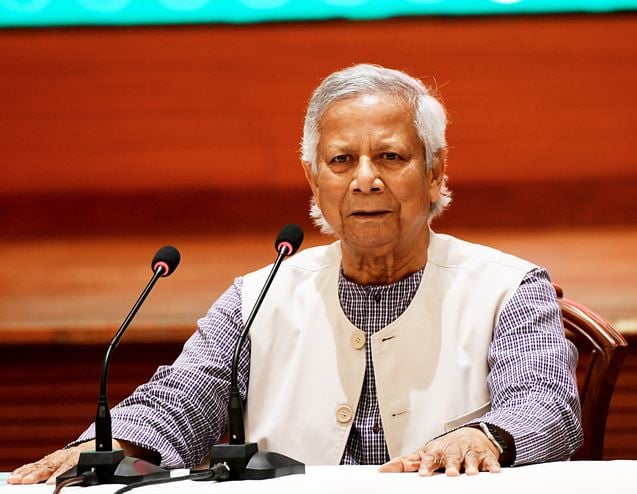Chief Adviser Professor Muhammad Yunus on Thursday envisioned a new Bangladesh free from fear where its people will live with communal harmony.
“We are talking about communal harmony. We all agree that we have harmony. I want to add one thing to the harmony – that is fear. Along with harmony, we have fear in our minds too,” he said while delivering his concluding remarks with religious leaders of Bangladesh at Foreign Service Academy.
“We are citizens without fear. We are not citizens with fear,” the chief adviser said, adding that such an environment would be created that there will be no fear among people.
About the rebirth of Bangladesh, he stressed the need for building such a Bangladesh where one citizen will not fear another.
Prof Yunus suggested that all citizens should be free from anger and fear first and move forward building a tolerant Bangladesh, without changing its structure, where there will no accidents or once any accident happens, it could be addressed.
“Once we can build such a country, it will be a successful one. We are waiting for this. Allah has given us the opportunity to imagine such a state and advance to it. I am seeking your cooperation to this end…and it is possible,” he added.
The chief adviser said the people of Bangladesh are living in peace but any incident may make people angry.
“It should be mitigated…we must mitigate our anger so that it does not become the reason for another incident,” he added.
Prof Yunus said the country’s people ousted a political force but they were not sitting idle, they were creating instigation from home and abroad.
Asking all not to respond to these provocation, the chief adviser said the ousted force is creating provocation in such a way that it does not seem an instigation.
Mentioning that instigation is also creating due to external reason, he said the country’s people should learn how to address their provocation so that they do not become victims.
Bangladesh is being targeted time and again due to instigation, Prof Yunus said, stressing the need for addressing it at state level, not individually.







